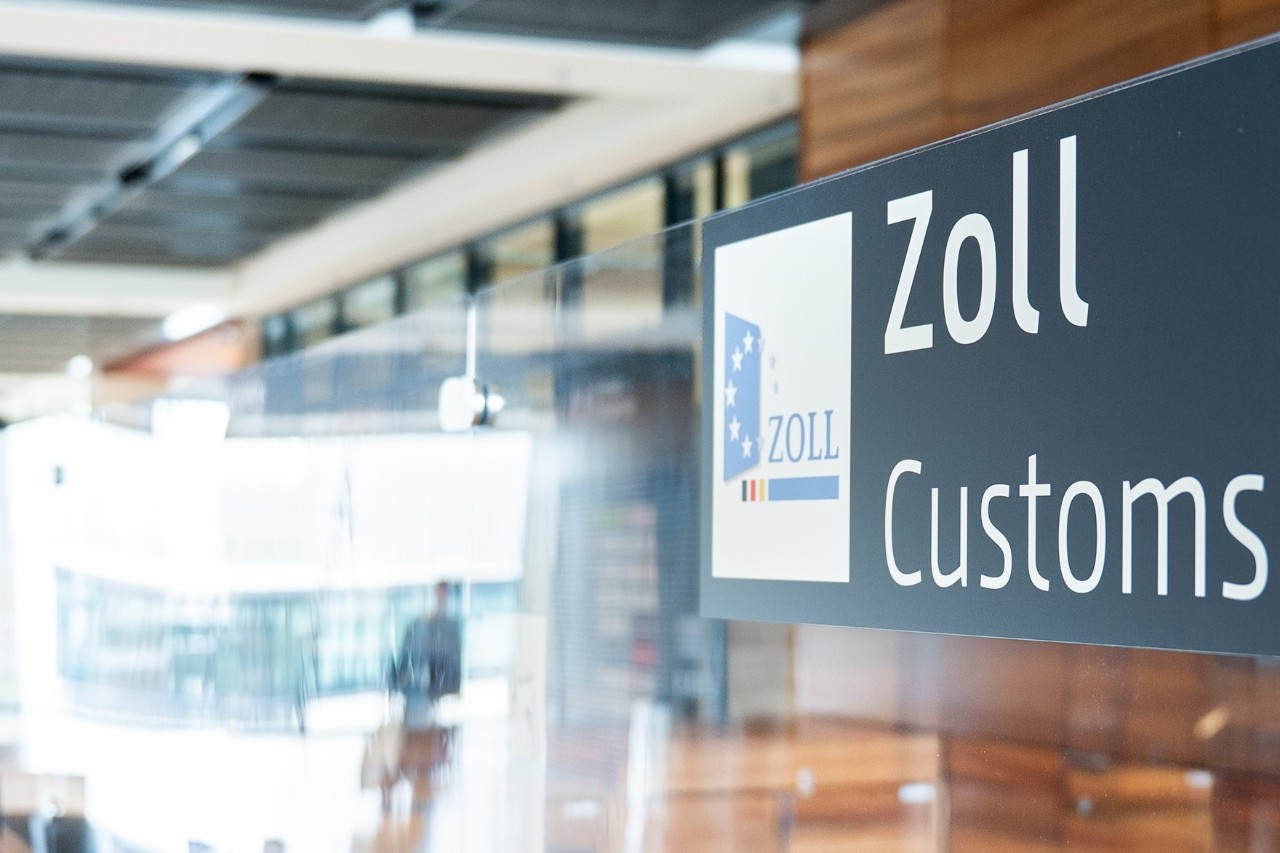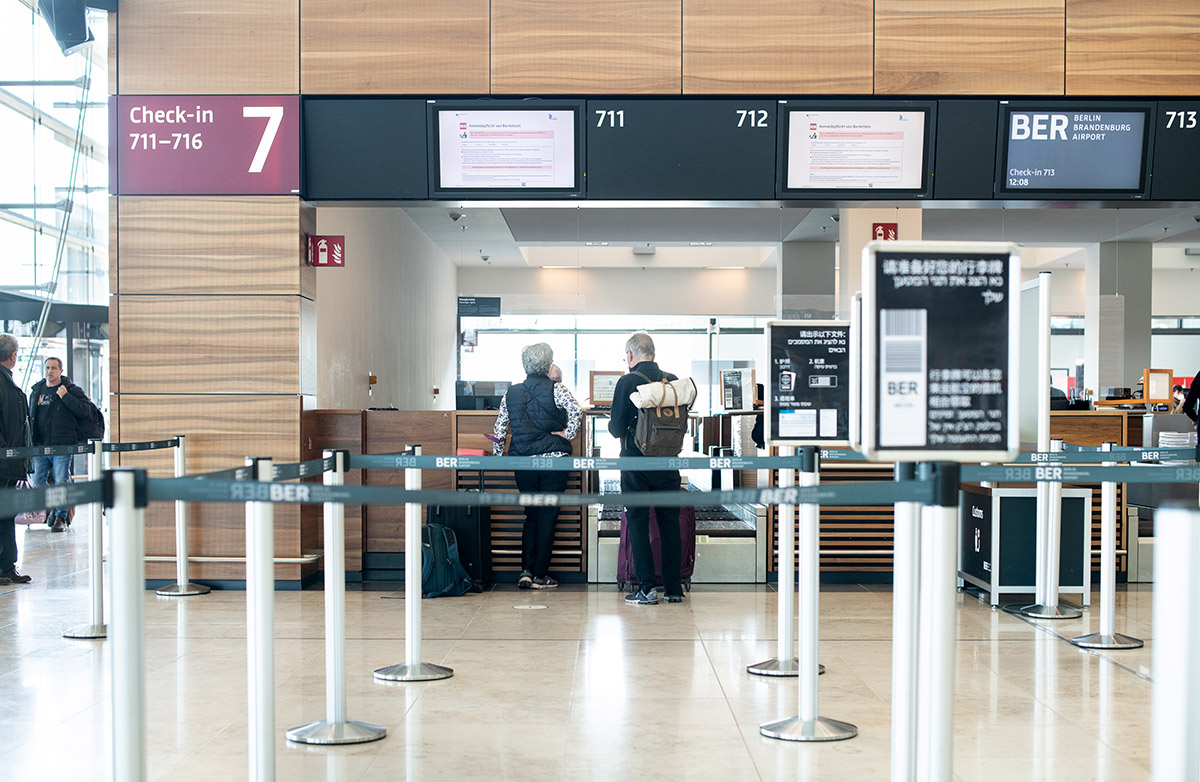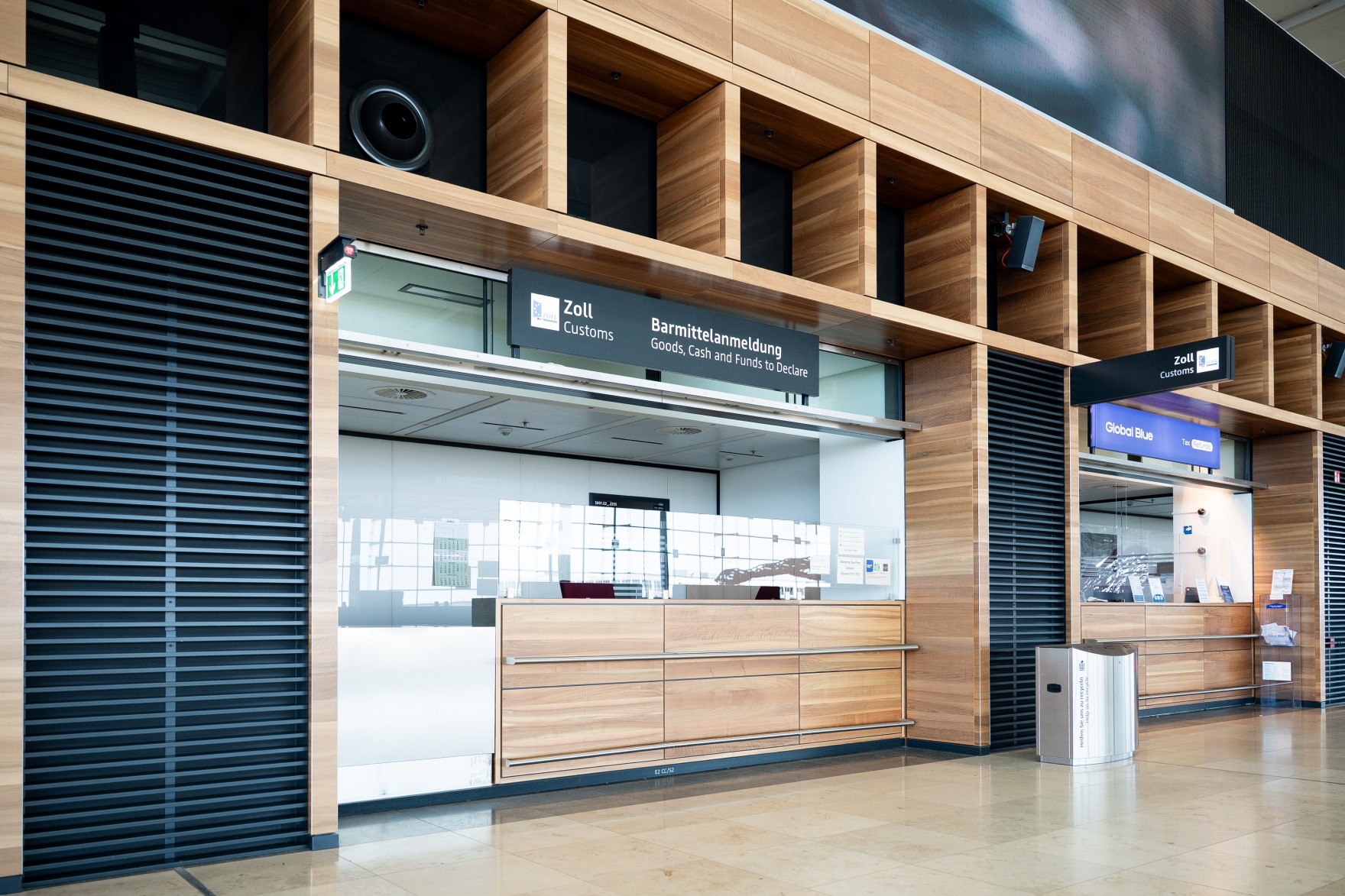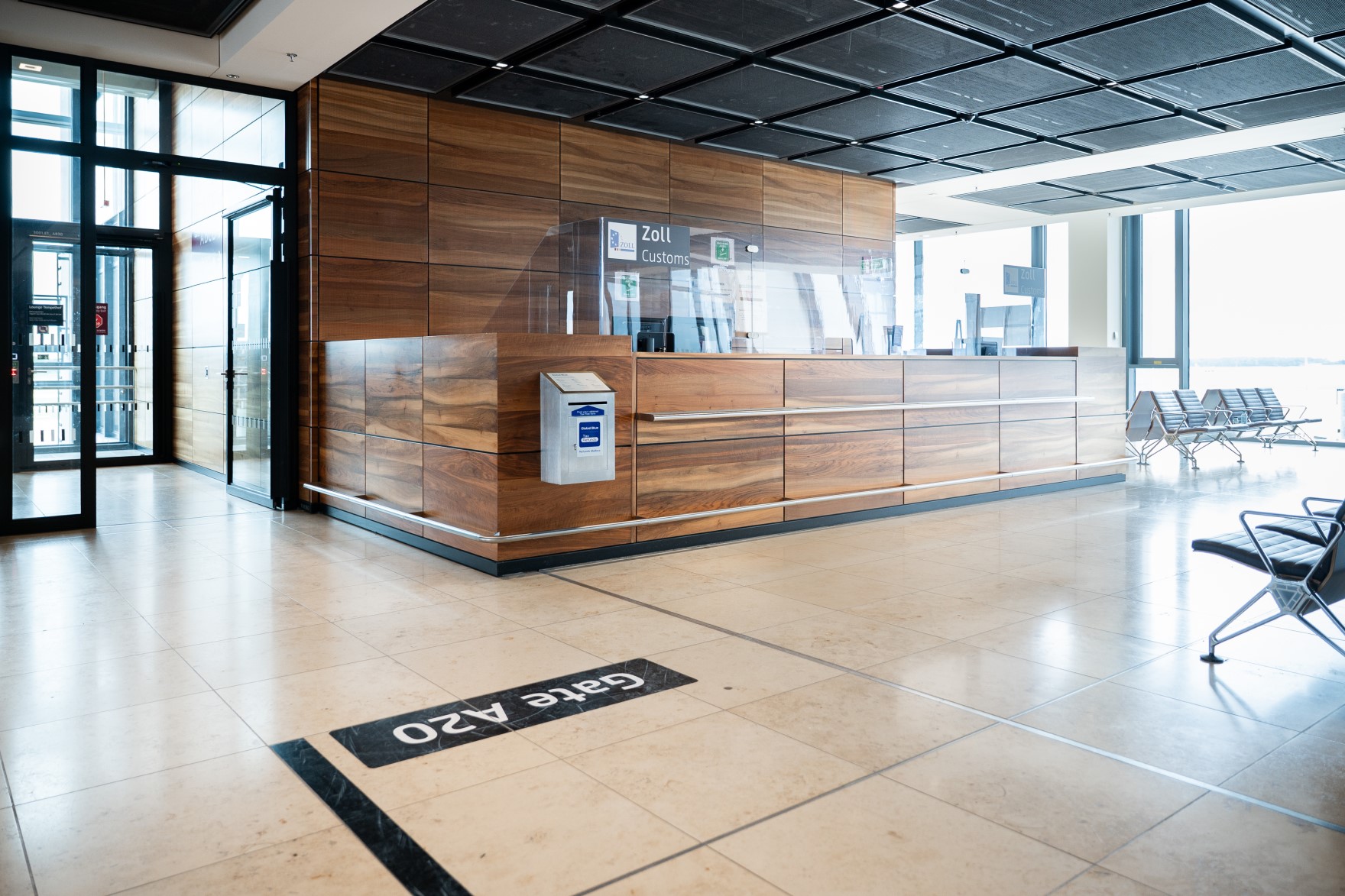Things you should know
Different approved quantities apply for individual regions of origin.
Current information regarding approved quantity limits/value limitations can be found on the Customs website.
If these value limits are exceeded then extra import duties are due. These are calculated based on the full value of an indivisible product (such as jewellery, clothing, electronics). To do so, use the red exit at Customs and register your goods with them there.
Please note that goods for commercial trading and goods that are subject to bans and restrictions must always be registered.
When importing meat, milk, and products made from these, special regulations apply. The aim of the measure is to prevent animal diseases from becoming more widespread. Make yourself aware of the import regulations for your own safety before travelling.
Travellers residing outside of the EU are entitled to a refund of the VAT paid on purchases made in Germany before they return home. To do this, the purchases (goods), invoices and travel documents must be presented and confirmed at customs. The refund will be made at the cash refund offices at Global Blue and Travelex upon confirmation.
Please follow this procedure if you want to have the VAT refunded:
Private individual with goods in checked baggage
- Go to your check-in counter and receive your baggage labels.
- Then take your labelled baggage to the customs counter at check-in island 7. The export certificate for the goods in your checked baggage is issued at the customs counter. Baggage is taken away at these counters.
Private individual with goods in hand luggage
- If you are transporting the goods concerned exclusively in your hand luggage, your checked baggage can be taken away directly at the check-in counter.
- After passing through the security checkpoint, please go directly to the customs hand luggage clearance in the security area.
Transfer passengers
Transfer passengers leaving the EU can go to the customs office in the gallery in the main hall if they did not receive a customs certificate at their departure airport.
Commercial goods
If you need a formal export declaration for commercial goods, you have to take your labelled baggage to the customs office in the gallery in the main hall in Terminal 1 after checking in. Then check your baggage in at the check-in counter.
Goods in oversized baggage
If there are goods in your oversized baggage for which you need a VAT refund, go to the customs office in the gallery in the main hall after checking-in, also in Terminal 1. Then check your baggage in at the oversized baggage counter.
Refund
Get your VAT refund in cash at Global Blue’s nearby cash refund office or send the cheque to Global Blue to be credited to your credit card. Another option is for Global Blue to send you a bank cheque. Visit the Global Blue website for more information on VAT refunds.
Detailed information is also available on the customs website.
Many holiday destinations feature offers of products that appear to be from big-name manufacturers for very low prices. However, these are rarely bargains, even though they may appear so on first glance. They are mostly poor quality illegal copies. Such goods can only be for personal use in small quantities, otherwise they are seized and confiscated. Further information can be found on the Customs website.
Cash controls take place on the outer borders of the EU and at borders between EU member states to prevent the use of cash from criminal activities or from money laundering.
In general, cash or equivalent means of payment (traveller’s cheques, savings accounts, cheques, shares, interest coupons, bonds, bills, promissory notes) worth more than €10,000 must be reported. However, the type of reporting differs depending on the travel areas. Such registration is carried out orally for journeys within the EU. If travelling from a third country into an EU state, and from an EU state into a third country then any cash which exceeds the above-stated sum should be documented in writing. A written registration should be handed in at the red part of the customs counter. If leaving the EU then such a report must be declared before reaching the security controls. Please follow the signs that show the way to the relevant Customs authorities.
Endangered, protected animal species and plants must not be transported as per the Washington Convention. Trade in endangered animals and plants is either completely forbidden or only permitted under very specific circumstances. Infringements will be strictly followed and those involved will have to pay large fines or even face jail as well as their goods being confiscated. In general, we would also like to ask you to avoid buying living animal souvenirs, animals and plants as well as the shells of giant clams and pieces of coral with the aim of protecting endangered plants and animals.
Global tourism and trade mean that the risk of introducing foreign plant diseases and pests is high. Therefore, Regulation (EU) 2016/2031 on measures to protect against plant pests regulates the import of plants and plant products within the EU through the imposition of import restrictions and bans.
- In principle, plants from countries outside the EU (excluding Switzerland and Liechtenstein) require a phytosanitary certificate from the competent plant protection authority within the respective country of export.
- Plants that are to continue growing domestically must be registered with the plant protection service and be subject to an import inspection.
- Plants and plant products imported without a certificate are generally destroyed at the importer's expense. Furthermore, fines may be imposed.
- There are also regions within the EU from which the import of plants is prohibited, as well as plant inspections without the appropriate health certificate. Therefore, before the start of the journey, please enquire about the corresponding import regulations from the plant protection service in your federal state.
Further information can be found on the website of the Julius Kühn-Institute
The border veterinary is responsible for monitoring the entry and transit of animals, goods of an animal origin, and all plant-based products and food which must be subject to examination. Community and national regulations regarding animal protection, animal diseases, and health protection in both the commercial travel and tourism sectors are the foundation for this work. In addition, seizure and quarantining of animals that are not permitted for export as well as seizure and destruction of foods and products of animal origin are carried out by the border veterinary service in collaboration with Customs. The border veterinary service also handles risk-oriented customs control of travellers from countries with severe outbreaks of animal diseases as well as monitoring records and the safe disposal of on-board waste.
Air transport of animals is subject to a series of complex regulations and laws. Animal health, animal protection and safe foods of animal origin are amongst the primary tasks of the Bundesamt für Veterinärwesen (Federal Veterinary Office). It also includes ensuring good conditions for exporting foods of animal origin. In addition, BVET monitors cross-border traffic and trade in animals and plants as well as animal products and foods of animal origin.
If you are travelling to the European Union from a non-EU country, you are not allowed to bring any meat or dairy products with you. However, you can carry a limited amount of fruit and vegetables as well as eggs, egg products and honey. Limited quantities of fish or fish products are also permitted. You may be checked by the responsible authorities when you arrive in the EU from non-EU countries. Any meat or dairy products you have brought with you that you have not declared will be confiscated and destroyed. You may also be fined or prosecuted. Please note the following information:
Annex III - Information from the European Commission
Poster Animal Diseases (Publisher: European Commission)
More information can be found at the EUR LEX platform of the European Union







